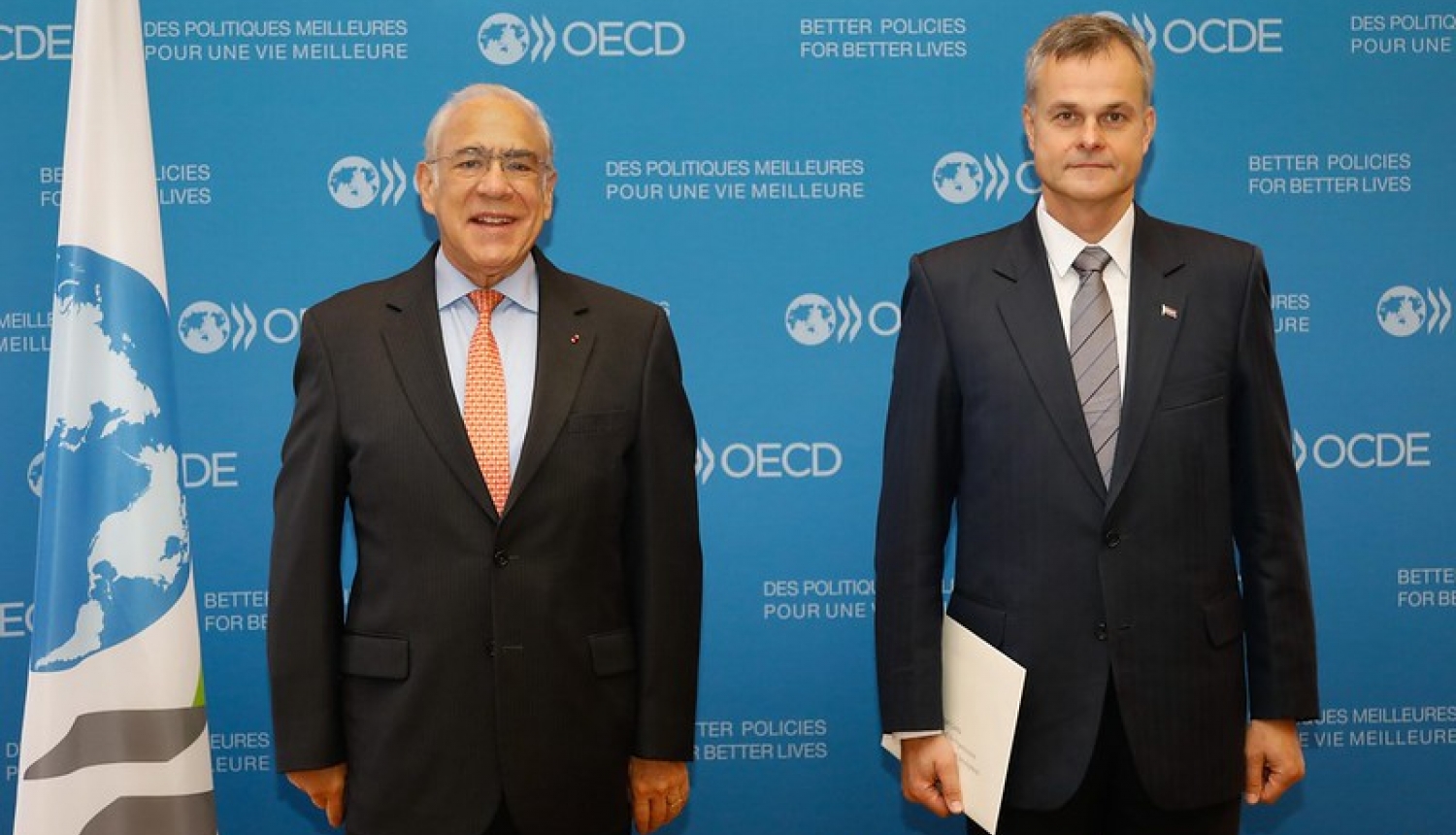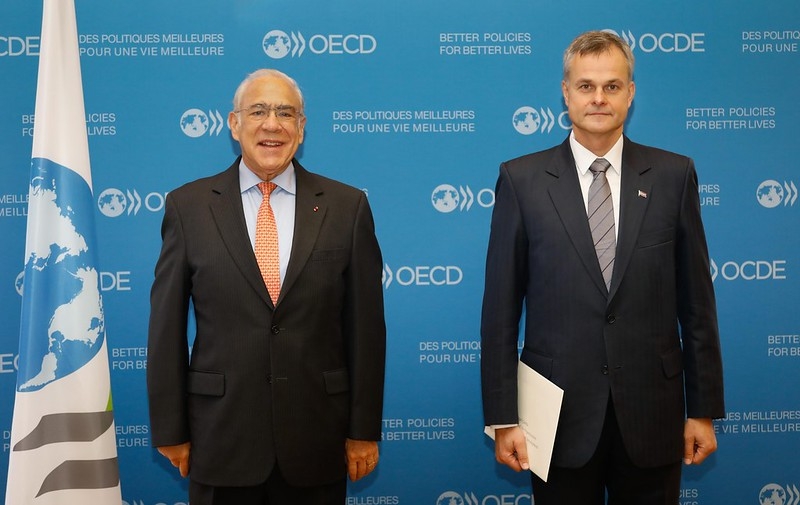On 1 September 2020, Indulis Ābelis, Ambassador Extraordinary and Plenipotentiary of the Republic of Latvia to the Organisation for Economic Cooperation and Development (OECD) presented his letter of credence to the OECD Secretary-General Angel Gurría.
During the accreditation ceremony, the Ambassador expressed his readiness to continue Latvia’s successful cooperation with the organisation. Amb. Ābelis confirmed that the OECD’s recommendations offer essential support for inclusive, environmentally-friendly, and digital policy planning and reform implementation.
The Ambassador and Secretary-General discussed current OECD issues: the upcoming OECD Ministerial scheduled for 28-28 October, the 2021-2022 budget, the possible enlargement of the organisation, and other questions and challenges.
Secretary-General Angel Gurría expressed his appreciation for Latvia’s active work in the OECD and the bilateral projects which have already been implemented as well as for planned cooperation, on the increase of productivity and raising of competitiveness, the utilisation of opportunities that come through digitalisation, the necessary development of skills for the job market, provision of quality education and access to it, reducing inequality, effective collection of taxes, fighting corruption in international transactions and the enhancement of corporate governance.
Background information
On 1 July 2016, Latvia became the 35th member state of the OECD.
The mission of the OECD is to promote prosperity and well-being, based on inclusive and sustainable economic progress and global trade. In order to achieve these goals, the OECD’s task is to foster solutions to problems of a global character, and through sharing of experience, analyses, and forecasts to determine best practices in governance and to coordinate amongst member states the policies that will yield solutions needed. At the moment, 37 countries are member states of the OECD.
For the latest OECD reports and recommendations to governments in the context of the COVID-19 crisis, see the following site: https://www.oecd.org/coronavirus/en/





